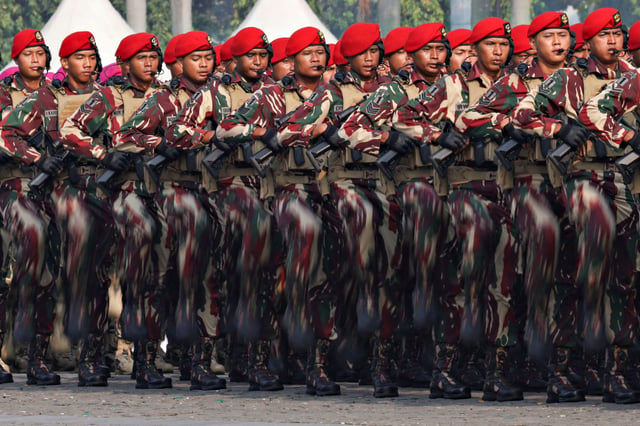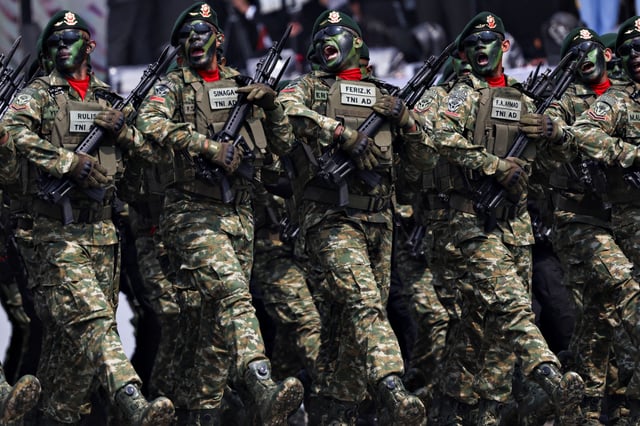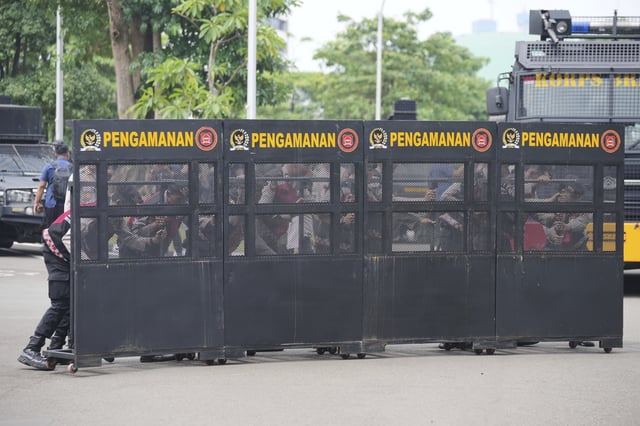Overview
- Indonesia's parliament unanimously approved revisions to the military law, increasing the number of civilian roles available to active-duty officers from 10 to 14.
- The new law permits military personnel to serve in institutions like the Attorney General's Office and the counterterrorism agency, raising concerns of diminished civilian oversight.
- Critics warn the changes could lead to human rights abuses and a return to authoritarian practices reminiscent of the Suharto era.
- President Prabowo Subianto, a former special forces commander under Suharto, has been a key advocate for the law, citing geopolitical challenges as justification.
- Protests by civil society groups and students continue, with activists decrying the expedited and secretive legislative process as undermining democratic principles.



